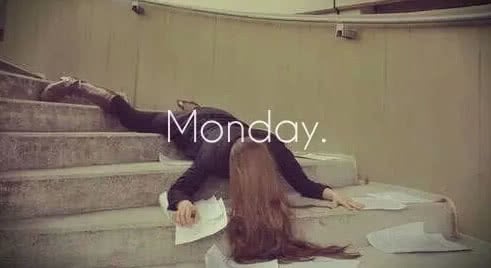Weekend Blues? The Secret to Reenergizing Effectively

Coping with weekend blues: What feels like depression might just be fatigue.
It’s late Friday afternoon, and you’re spent. You strive hard at your job, and on weekends you want to change gears, relax, perhaps socialize, and accomplish personal tasks on your to-do list.
With so many expectations to accomplish tasks, does your weekend feel like a second job? Like you never really accomplish enough during your 48 hours off of work? Does the weekend end up depressing you more than rejuvenating you?
We often mistake depression for what is actually fatigue. We’re not depressed, we’re tired. Our bodies and minds need R&R to accomplish anything, and if we do not get enough sleep and restful downtime, we end up with diminishing returns on overextended efforts.
The key is to remember that sleep counts as doing something. In fact, sleep is an investment of time necessary to maximize our waking hours.
Brain research indicates that a fatigued brain mimics a depressed brain. If we careen into Friday night exhausted, yet anticipate high expectations for doing, doing, doing, on the weekend, we can end up depressed. We need to do less, and rest more.
How, then, can we strike that elusive balance between our discipline for productivity, with our need for rest?
Here are top ways to get enough rest in order to get the most out of our weekends, and stave off the weekend blues.
1) Plan Out the Weekend Before It Begins.
While the weekend is the perfect time to catch up on laundry, clean out the garage, or get a haircut, we often overschedule. Juggling expectations can tax on-the-fly time management, especially when we are tired.
Prioritizing plans before Friday night can help ease scheduling pressure, and therefore smooth your transition to the weekend.
2) Know Thy Exhaustion.
Do you ignore mental confusion, lack of motivation, or your body feeling worn down, and keep plugging away? Pushing through signs fatigue can only last so long before you end up with an adrenaline crash.
If you experience warning signals of fatigue, know to pay attention. Put your feet up. It’s time to take advantage of the weekend for rest.
3) Be Honest About Expectations.
Does calendar white space mean secret hopes to accomplish more than is reasonable, especially with waning energy? These expectations – sometimes framed as hopes – can undermine our capacities to let go, and worse, leave us feeling frustrated with ourselves when we inevitably give into our need for rest.
Ask yourself: Are all of my plans practical, or will they cut into my need for rest?
4) Structure the Downtime.
Is your calendar white space staying too white? This can also lead to depression. If you prefer to plan, plan. Just be sure to mark out blocks of time for rest and outright sleep.
Again, because sleep counts as doing something, schedule it as well.
5) Know Thyself: Is Resting Hard for You?
Discomfort with rest can add an unsettling quality to the weekend, and can be confused for the blues. If it’s hard for you to turn off, recognize and predict this.
Reframing rest as a necessary part of productivity can help you prioritize its value. Instead of thinking about the things you can’t accomplish when resting, focus on how you are investing in your future energy and mental capacity.
6) Know Your Social Threshold.
Introvert or extrovert? Psychologist pioneer Carl Jung coined these terms that are now a fabric of our culture. These personality traits reflect where we derive our energy – from being with others, or from being alone. Extroverts are rejuvenated by social interaction, whereas introverts are depleted by it.
The key is to understand where you fall on the continuum so that when you are fatigued, you recognize what you need to do to restore your energy. If you have a week filled with social interaction outside your comfort zone (i.e. an extrovert at an isolating desk job, or an introvert engaged in face-to-face interactions) expect to hit the weekend in need of rebalancing.
7) If You Still Feel Depressed – What To Do.
When you can’t sleep or eat, your anxious thoughts won’t turn off, you can’t stop crying, or when things feel truly hopeless, you could be at risk for depression. Fatigue will only exacerbate it. In this situation, contact a professional for help.
For many, the real issue driving the weekend blues is not mental health problems, but rather mental and physical fatigue. Even though weekends are slated specifically for time off, we still need to make rest happen.
When we prioritize sleep and rest, we benefit from true rejuvenation, rebalancing ourselves from the past week, and allowing ourselves space to mentally and physically feel prepared for the week ahead. We’re at our best with enough rest, mentally and physically.
Looking for more help in navigating balance and managing anxiety? Check out my online interactive Hack Your Anxiety Accelerator based on my bestselling book, Hack Your Anxiety.
This 6 module online interactive training uses downloadable exercises and targeted explanations to furnish you the tools you need, step by step, to fast-track taking control of anxiety, and forging balance, right now.
Offered at a huge discount for a limited time, claim your spot here.